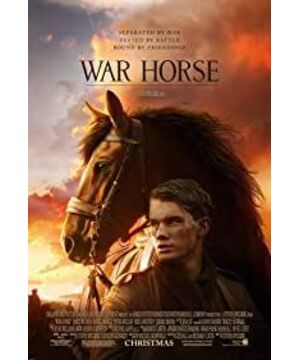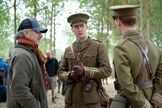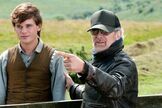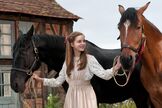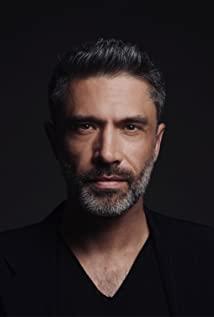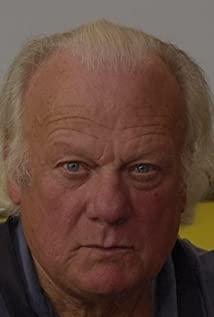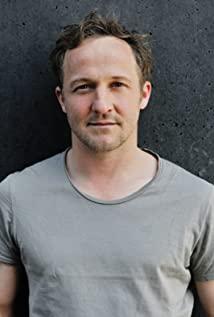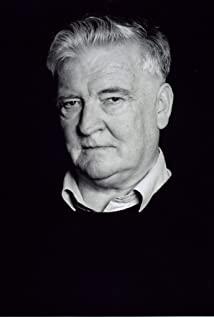What attracted me to watch this film was not Spielberg’s name, nor the actors involved, but the rare theme of World War I and the short-lived story about the North Somerset Yeomanry (North Somerset Yeomanry). Pieces.
The North Somerset Volunteer Cavalry was formed with the formation of the Territorial Force (Territorial Force). It was originally affiliated with the 1st Southwest Cavalry Brigade and headquartered in Bath. It has four cavalry units A, B, C, and D. Squadrons, of which A Squadron is based in Bath, and training camps are in Bathampton, Farmboro, Flåm, Myers and Rhodes. This cavalry squadron was recruited by Edward William Horner, the heir of the Horner family of Myers, at the beginning of the war. He was later transferred to the 18th Queen Mary's Hussars and died in the Battle of Cambrai in 1917.
After the outbreak of World War I, NSY was expanded into three regiments, of which 1/1st was a front-line combat force in the true sense. It was transferred to Sussex with the Southwest Cavalry Brigade in August 1914. It was then ordered to go to France alone. It landed on November 3 and was incorporated into the 6th Cavalry Brigade of the 3rd Cavalry Division on the 13th. The Germans suffered heavy losses in the resistance against the German offensive near Bellewaarde in Ypres. In March 1918, they left the division and initially planned to be reorganized into infantry. Two days later, they merged with the Leicestershire Volunteer Cavalry to form a machine gun battalion, which was ultimately due to the German spring offensive. While shelved, the regiment remained as a cavalry regiment. It was disorganized in April and merged into each battalion of the 6th Cavalry Brigade based on the squadron (1st Dragoon, 3rd Guard Dragoon, 10th Light Cavalry). There is no doubt that the NSY unit that appears in the film belongs to the 1/1st NSY.
Presumably, many female audiences went to Tom Hiddleston and Benedict Cumberbatch. Both of them played NSY officers in the film. BC was Major Jamie Stewart, TH was Captain Nicholls, and Julian Bell was played by Patrick in "Cambridge Storm". Kennedy is their colleague, Lieutenant Charlie Waverly, this is not the first time Patrick has been an officer in World War I. These three difficult brothers died and two prisoners in a surprise attack on the enemy camp. Horse corpses were mixed with human corpses. The situation of lying on the battlefield was not bloody, but it was enough to make people feel sympathetic. Especially when I think of Edward's serious injury in 1915, his death in Cambrai in 1917, or such a tragic charge. I used to pay attention to the British soldiers who died in the First World War. When watching this clip of "War Horse", the issue of prisoners was seriously considered for the first time. It was because I felt that the prisoners of war were not sufficiently honorable and dignified. Waverly was overturned from the horse, and Stewart plunged his saber heavily into the soil in the encirclement. What's the lack of dignity? The First World War was originally a worthless battle that consumed people's lives, and it was not worth the burial of so many young people. However, Stewart's sentence for fallen comrades in his pre-war mobilization speech still moved me. For fallen comrades, for soldiers in mud and gunfire, it is much more than for the King.
Anti-war themes are everywhere. Albert’s lame and alcoholic father, Ted, was originally a veteran of the Imperial Volunteer Cavalry. He participated in the Second Boer War and served in South Africa. He was seriously injured. He received the DCM (Medal of Merit in Combat, corresponding to DSO. DSO awarded appointed officer, DCM). Granted to non-commissioned officers), but Ted was not proud of what he did in the war. He threw away his regiment pennant and medal, but his wife Rose kept it secretly and hid it. Rose showed these to Albert later. The scarlet pennant thus became a symbol of the film. As Albert's hand was tied to the bridle of Joy, who became a war horse, he passed through the flames of war, fell into the hands of the French grandson, and finally returned to Albert. Hand.
When Nicholls died, the mount Joy was captured by the Germans. It was handed over to two young logistics soldiers, Gunther and Michael. However, as the battle situation evolved, Michael was transferred to active duty. Gunther feared that Michael would die on the battlefield when he was too young. , He would abandon his pledge to take care of his brother. He rode Joy halfway and intercepted Michael and became a deserter. The film has no comforting ending. The brothers were caught and shot as I feared.
Then came to the French grandson's house. The granddaughter's parents died in the war. The granddaughter accused the grandfather of cowardice, and the grandfather said, there are different ways to be brave. The granddaughter picked up Joy and its dark horse friend left by Gunther and Michael. She trained Joy and wanted it to learn how to hurdle, but such a peaceful and idyllic life was only a flash. Joy was soon taken away by the German troops. In order to replace the declining Xiao Hei, it voluntarily was dispatched to pull the super heavy howitzer (that Is it Dicke Bertha? No research on the heavy artillery of World War I, ask for advice), degraded from a horse to a coolie.
The fire of the high-explosive bomb illuminates the British trenches, and Albert's face appeared in the trenches. It turns out that he has also moved from Rong to France. Time passed, and in 1918, a small trench offensive and defensive battle was being carried out fiercely on the Somme. Before the machine guns were fired, the British troops continued to fall. Albert charged to the front of the German trenches and killed the German machine gunners with a grenade. The brief excitement of capturing the trenches was quickly dissipated by the sudden poisonous gas. On the other side, Xiao Hei finally died due to exhaustion. On the way to the march, the missing Joy rushed from left to right in front of the approaching tank. In the end, he was almost crazy, running wildly on the battlefield where the two armies were facing each other, and unfortunately fell into the cage of iron gill nets. In order to rescue Joy, the British and German soldiers raised a white flag and temporarily truce. The two young men who were originally brothers but became enemies used iron tongs to cut off the iron thorns on Joy's body and spoke fluently in English. In the war, many Anglo-German soldiers were of both ancestry. They faced the torment of camp selection, they faced many difficulties, and they faced the tragedy of picking up guns and slaughtering their siblings. But this is war.
Albert, whose eyes were wounded by poison gas, reunited with the unrecognizable Joy in the first aid station. The vow back then, "No matter where you go, I will find you", lingering in his ears.
Although not perfect and disappointed, this is still a good movie I saw this year.
View more about War Horse reviews


